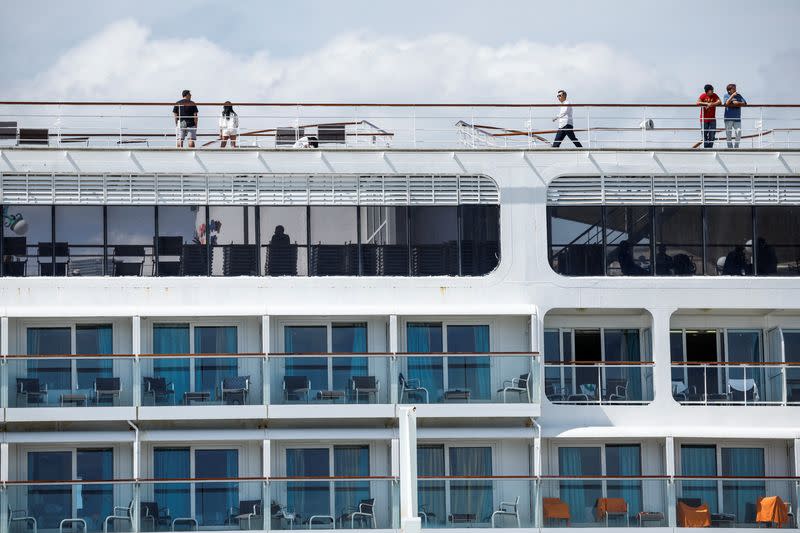Spain bars Bolivians from disembarking cruise ship amid lack of visas
BARCELONA (Reuters) - Spanish authorities have barred around 70 Bolivian nationals from disembarking a cruise ship in Barcelona due to a lack of EU entry visas, preventing the ship with hundreds on board from continuing its journey until the situation was resolved.
The cruise ship, MSC-Armonia, which began its journey in Brazil, arrived in Barcelona early on Tuesday and was scheduled to leave for Corsica off the French coast later that day, according to passengers' accounts and specialised maritime websites.
The Bolivian passengers had "appeared to have appropriate documentation" when they boarded the vessel in Brazil, but their visas turned out to be invalid to enter the European Schengen area, MSC said.
Passengers were not allowed to leave the ship until noon on Wednesday and they had to show their passports beforehand, Paul Ibarguengoitia, 26, who was travelling with his parents and aunt and boarded the ship on Sunday in southern Spain, told Reuters.
"We have been told there will be some relevant information announced some time today but we were also told that yesterday," Ibarguengoitia said, fearing they would miss a planned vacation in Venice, Italy, following the cruise and a return flight due to the delays.
Four police vehicles were parked by the ship in the port and some passengers were seen leaving and entering it on Wednesday, a Reuters journalist said.
The Spanish government's Catalonia delegation said on Wednesday it was working with the police, Bolivian authorities and Swiss-Italian operator MSC Cruises to resolve the issue.
"The ship remains in the port while we are working with authorities in this complex process," MSC said in a statement, without providing a reason for the delay or the number of passengers affected.
Bolivia's foreign ministry said in a statement on Tuesday it was MSC's responsibility to check travel documents and come up with a solution, but it was working with authorities to resolve the situation.
(Reporting by Joan Faus, Albert Gea and Corina Pons; Editing by Andrei Khalip and Bernadette Baum)






